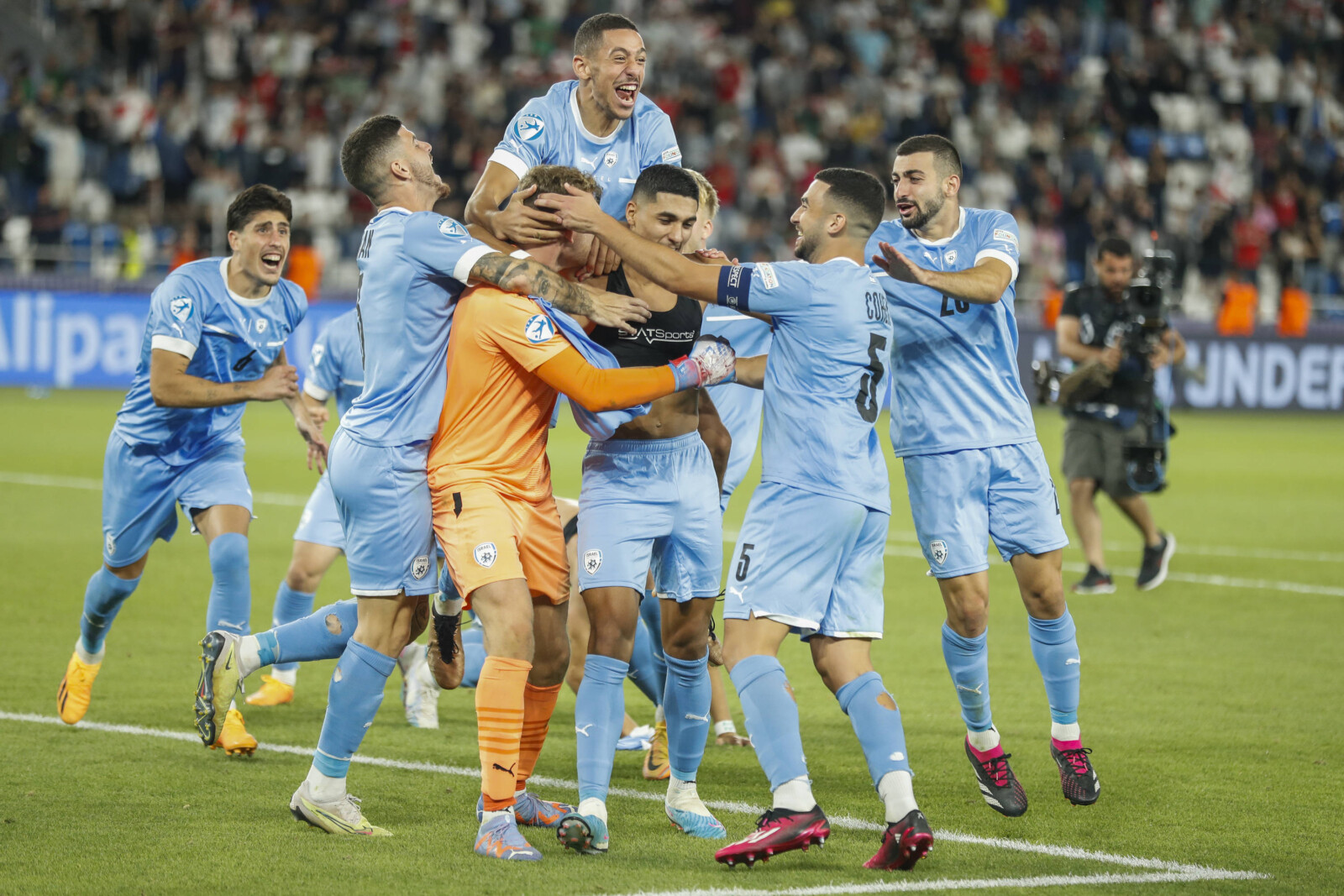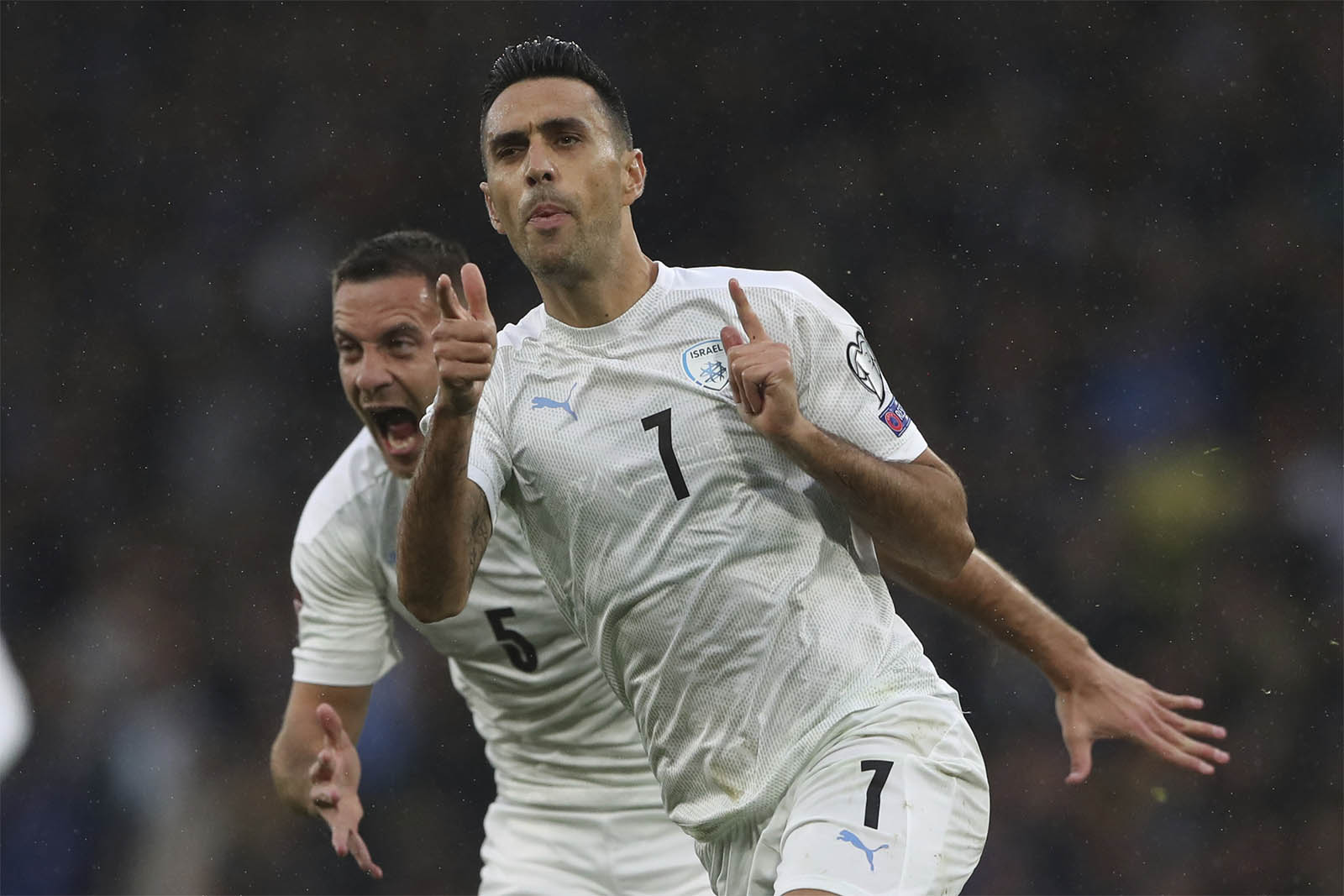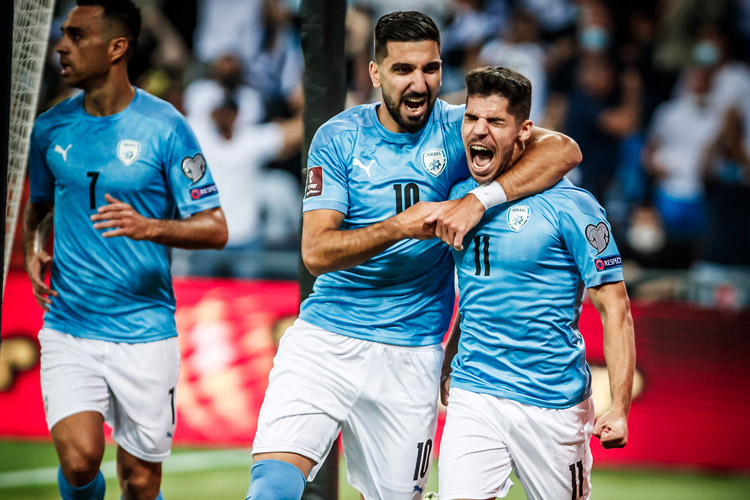One year back, March 2023. The youth team born in 2004, with a substitute player named Anan Halaili, fails to qualify for Euro 2023, a year after its predecessor, the one born in 2003 starring Oskar Gloch, reaches the final of the European Championship. It fails after it ends in an embarrassing draw in the last round of the elite stage against Latvia, in a stormy (windy) match at a remote pitch in Krakow.
Israeli football seemed at that moment a one-off, nothing more. A once in a generation whim.
Then May came, and the same Halaili, who scored against the Latvians, was one of the causes of the sensation of the youth team that finished in third place in the Mondialeto, after beating two continental champions (Brazil and Uzbekistan) and ending with the third (Senegal) in a dramatic draw.
A month and a half later, the young team reached the semi-finals of the Junior Euro and by the way, thus securing their participation in the Olympic Games in France, for the first time since 1976.

The players of the Israeli national team under the age of 21 celebrate the victory over Georgia in the Euro quarterfinals (photo: reuters)
And for dessert, two Israeli teams qualify together for the round of 16 of a European competition – and let’s leave for a moment the disgraceful defeat of Maccabi Tel Aviv on Thursday – and set a season scoring record and in general for the Israeli teams of all time.
Is anyone missing here to complete a perfect puzzle – youth, young woman, groups – of a rather battered branch on the representative level? That’s right, the senior Israeli national team.
It’s amazing how every renaissance in Israeli football – and this is really a trend – skips over the Israeli national team, and meets them at the end of this wonderful year, two steps before a historic participation in the Euros.
The semi-final of the Nations League playoff against Iceland next Thursday, a consolation prize for winning at home in the second tier of the Nations League, which was made possible by the suspension of Russia from international enterprises, was also achieved in the last year and a half, and can join the package of inexplicable successes of Israeli football.
And yet, the chances of getting past Iceland in a home game at Knightley Field, and after five days beating the winner between Ukraine and Bosnia – away, are very low. Not sure we would say that about another representative of Israel, a team, a young team or a youth team. We sign the team’s failure in advance.
It’s scientific: the Israeli team has not beaten a team superior to it in a game except in 30 years (France in the Parc de France) and has not beaten a team superior to it in a game except decisively in 48 years (South Korea on a ticket to the 1976 Olympics). And even if we search frantically, we will find one more surprising victory – somewhere in 1960 – over Yugoslavia in the qualifiers for the Rome Olympics. This. 3 significant away victories in 90 years of activity.
Here the team needs two victories in five days. It is also possible in the deciding kicks (which means that the games will end in a draw), but what is the probability of that happening in this campaign and in such a short period of time?
That is, without saying the explicit word (“no chance”), we have little faith. why is it happening? Why is the national team the punching bag of Israeli football, both in terms of results and looking at it?
***
It seems that the treatment of the national team has undergone a radical change in the last 30 years, since the Israeli teams entered to play regularly in the European Cups. There is hardly a reasonable club in the Premier League that does not experience Europe, there is hardly an ardent fan who does not fly with his team to matches. The Israeli teams send representatives to the group stages almost every year, the friction with international football is constant, the Israeli fan has found representative sympathy: the teams. The team was left behind.
The Israeli fan is even more a fan of his team and even less of the national team. There are a variety of reasons for this, grim in themselves. First, the team is played by players that the fan did not choose, and certainly those from teams that he is not a fan or likes or is even indifferent to. They come from groups he hates. And there are also Arab players, who do not sing the anthem Rahmana Litzlan, so from the fan’s point of view – the whole team is invalid.
Cases such as the throwing of the captain’s ribbon by Eran Zahavi – which came after animosity unrelated to status, by fans of an opposing team, in a national team match – or the post of Moans Davor in the ‘Guardian of the Walls’ operation that drew raucous boos after every touch of the ball by Davor in the national team’s uniform, are cases that do not existed in the past. From the moment a player put on the team uniform, he was a saint. It doesn’t happen anymore. On the contrary, the national team is the place to hit such players verbally and without defense.

Eran Zahavi celebrates a goal against Scotland in the World Cup qualifiers (Photo: AP Photo/Scott Heppell)
The rivalry – sporting and even political – seeps into the players as well. In April 1989, the team qualified for the playoffs to advance to the 1990 World Cup, after a 1:1 draw in Sydney with Eli Ohana’s crazy goal. Before the trip, every player who played in the campaign was promised 50 thousand dollars for winning at the head of the house or 25 thousand dollars for those who did not play, but were with the team.
During the time of injuries, the late coach Jacob Grundman asked to make a substitution in order to waste time and called Eli Derricks. The Maccabi Tel Aviv striker stopped Grundman and told him: “Nir Levin didn’t play a single minute in the campaign, put him in.” And that’s exactly what Grundman did. Levin didn’t have time to run from the substitutes’ position to the middle circle and the referee blew his whistle to finish. In doing so, he earned an additional $25,000 Thanks to Derricks. It is doubtful if such a case could have happened today. The team is also not as cohesive as it used to be.
In those days the team trained 3 times a week. Every Monday the players would come to the Wingate Institute or the guest house in Shafiim, come with equipment for three days, play against a team from a lower league, and return home on Wednesday. The teams did not have a sei. Today it is not possible.
Some of the players play abroad, some play in representative teams whose schedule is crazy, and no one will release even a negligible player for training outside of the official framework of the team. And so it turns out that once every few months, the team meets, sometimes with players who have never been together, or not You know the framework, the method, the game plan, and every time everything is rebuilt. It’s like building a new team from selected windows.
Moreover, players who are in such intensity, get injured. Some of the players dropped out of the team due to injuries. In 1977 Mozzi Leon was called to the national team with a hand cast, in 1999 Haim Rabivo was trained for a game with a severe foot sprain that occurred two days before the game. It wouldn’t happen today. Players prioritize their permanent team framework, and the dropout rate is high.
An injured player would rather not play in the national team than risk his career in the team. To sharpen this, there are professional teams – such as the current team – that do not report incidents with a disciplinary background, and simply do not call up players, even if they are in a form that guarantees them a call-up, as in the case of the current window – Sean Weissman who plays for Salernotina from Serie A or Dia Saba who scored this week in the emirates. Even Eran Zahavi returned to the national team only after he asked to return unconditionally.
***
The Israeli player no longer sees the national team as a platform for professional advancement, nor does he receive financial compensation from it. There are those who see the national team as a physical and mental burden and there have already been cases of players who preferred to retire rather than stay in the middle of the summer break in a shared room with another player for long days, and sometimes without playing. The days when Eli Ben Rimoush went out for two months with the national team, lost 8 kilos due to the lack of kosher food, and returned without playing even a minute – those days are gone.
It follows that not all the best players are in the team. In order to play in the national team, you don’t just have to play well, but maintain representative standards, and these are things that were less concerned with in the past. A team in which Davor, Weissman, Rafalov, Solomon, Shua, and Saba do not play for one reason or another, is a weakened team.

Manor Solomon and Moens Davor celebrate a goal against Austria (Photo: Israel Football Association)
A consequence of this is that in the current squad, which was called up for the game against Iceland and the one after it – the playoff final or a friendly match – there are almost no natural defenders, there is a shortage of defenders, there is no natural left winger and there is almost no replacement for the striker. That’s not how you go up to the euro.
The chance that the Israeli national team will get out of the pit it has fallen into – and we have detailed here the various reasons for this – precisely next week, in a window that is super critical but does not resonate with such interest, and in the middle of a war and without a home advantage, is shockingly small. People find better reasons to pray these days than for the success of the Israel national team.
And sorry for the pessimism.
It’s not us – it’s the team.
ظهرت في الأصل على www.davar1.co.il

